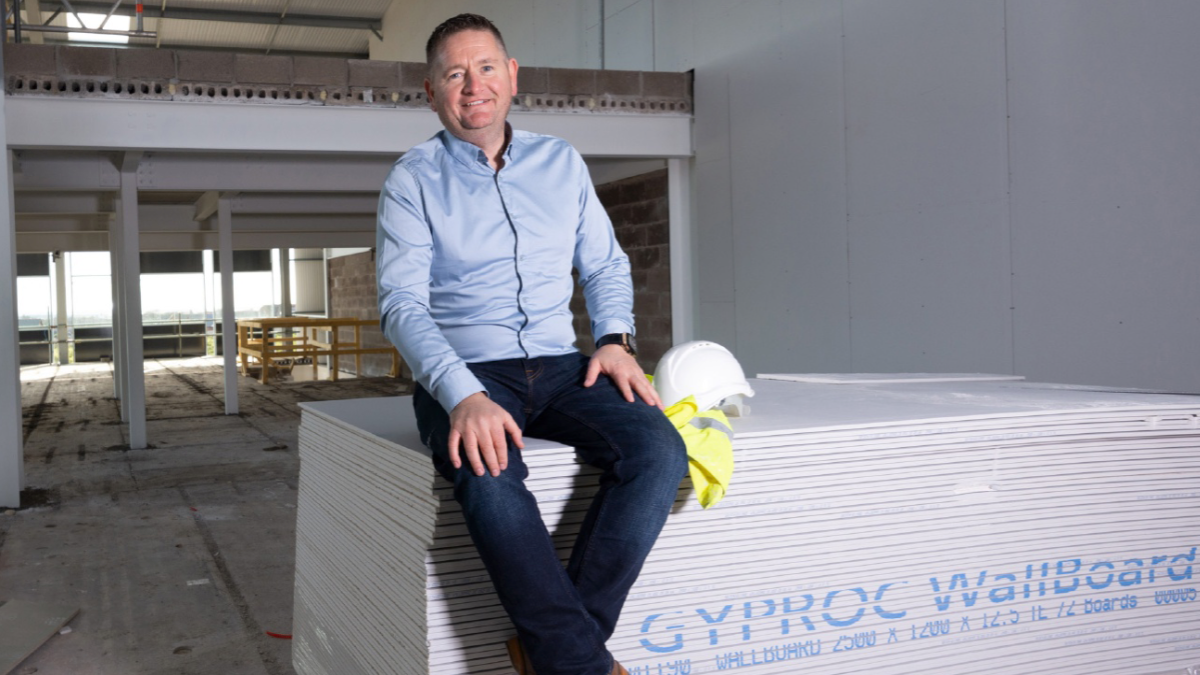
Eddie Black's determined spirit of entrepreneurialism is evident in almost everything he says and does. He's especially clear about the aims of the Eco group of companies which he founded, initially as a dry ice company in 2009 in Annan, Dumfries and Galloway, and which has evolved into a multi-solution provider with 85 staff across the UK.
He believes that businesses are an extension of the founder's vision, values and ethics. "For Eco (also known as Team Eco) this is about creating a legacy business that will be here in 150 years and includes building sustainability, job security and integrity into that ethos."
Eco operates out of a 3,000 square-metre base at Annan, a town that has a good local skills base and excellent logistic connections to locations in Scotland and south of the border.
It operates across a range of areas that include smart furniture, design and build, communications and carbon mitigation and services commercial, industrial, the public sector and residential customers.
Black was a deep sea trawlerman for almost 20 years, gaining his captain's license at 24 and operating out of ports from the north of Scotland to the Bay of Biscay. He had, he said, solved a lot of problems, and became a recognised fixer at sea, when he decided that he wanted a career change.
"When you're dealing with harsh elements at sea you develop a survival instinct, resilience and a problem-solving mindset." he says.
"My wife then had a franchise which involved cleaning kitchen ducting so I started looking at a process that would relieve the manual effort and came across dry ice, CO2 compressed into a solid form which converts back to a gas when it hits the surface being cleaned, and the rest is history."
When it comes to his passion for sustainability and the net-zero goal, he says: "I have four children and a grandkid, and as you get older you open your eyes to what's going on around them and at some stage you either take a stand or you sit on the sidelines and become another armchair critic."
His urgency to deal with what he refreshingly calls "problems" rather than "challenges" is tempered by the conviction that the business is built on collaboration. "The problem could be a client's, it could be ours - or it could come from a whole sector. Our job is to identify a solution - and you can't fix a problem unless you look at it with honest eyes."
He says that if Eco does not have that solution, it searches for it externally, which means identifying collaborative partners, in projects such as that with climate technology firm Levidian to deploy the first remote implementation of LOOP technology in the UK, delivering hydrogen and graphene on site with the objective of achieving net-zero carbon emissions and using the hydrogen for energy.
"If we're serious about succeeding in business in Scotland we don't have time to mince our words - we've just got to get on with it. And that requires collaboration," he says.
He highlights Eco's VASO Build Solutions, creating buildings from panels manufactured from recycled glass and providing affordable, low energy cost, low carbon dwellings. "Currently that's our leading project because it's a question of focusing your time and energy.
"While we've lots of technology within our grasp, there's a finite amount of resource, and through off-site construction VASO Build will provide housing solutions for social landlords, social housing providers and private house builders, and is ideal for commercial buildings.
"We have a team of experienced people believe it could become Scotland's next billion-pound company - we see this as the big one."
The innovation was selected this year for support on the Circular and Sustainable Materials Accelerator, established by BE-ST, Scotland's construction innovation centre in Hamilton and the company is now looking at equity financially - "not just to raise money, but the build the team."
The company is asking some searching questions itself: "How can we help with homelessness, the housing crisis and the built environment in general? How can disaster relief be achieved? And how do we apply this to the global market?"
He believes not having a history in the construction industry is a positive factor, as it enables Eco to look at situations with fresh eyes. "We're now on a global mission to use technological innovation in different regions in the world."
Closer to home, he sees VASO Build Solutions both as a way of expanding his experienced team and attracting local young people from secondary school to take up apprenticeships at Eco. "No matter what background you come from, if you've big ambitions and you work hard, they can be achieved. And we're certainly a local company in which they can find big ambitions."
A keen member of networking groups, Black says Entrepreneurial Scotland is the most productive of those with which Eco has been involved.
"It has been extremely proactive in introducing us to people and helping us to make the right connections - we have worked very hard to benefit from that."